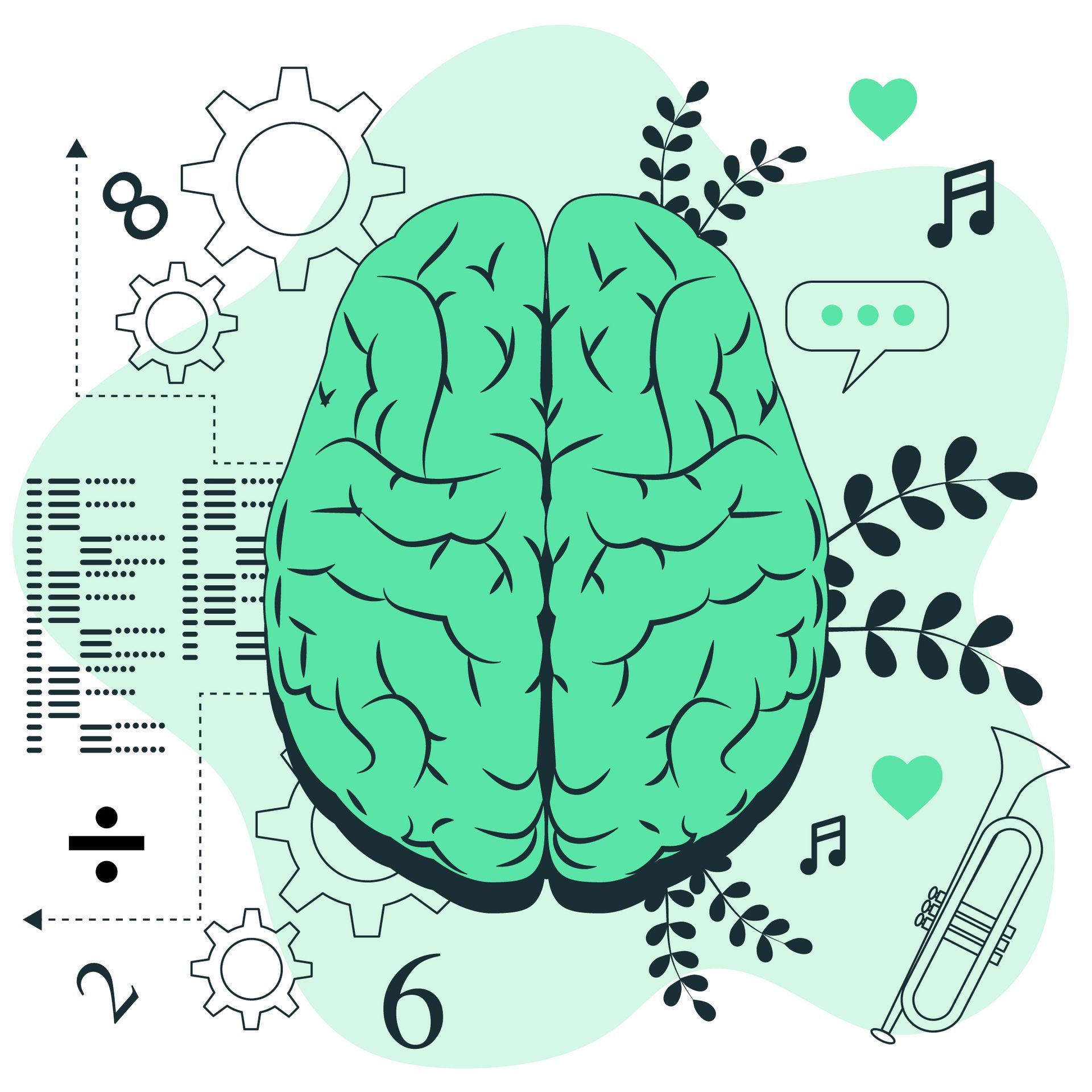The Complex, Capable, and Connected Nature of the Brain

By Thrive Waco’s Psychiatric Nurse Practitioner Marguerite ‘Peggy” Addison, APRN, PMHNP- BC
Often considered the most complex organ in the human body, the brain is intricately intertwined with mental, physical, and behavioral health — essentially, our entire well-being. Its capability spans cognitive processes, emotional regulation, bodily functions, and the way we behave.
While the scientific community has learned a lot about human brains, there is still much to be discovered. There’s no wonder that so many myths revolve around the brain’s processes.
FIVE MYTHS ABOUT HOW THE BRAIN FUNCTIONS
Myth #1: When it comes to brain functioning, it’s downhill after 40.
Brain function does change as individuals age, just as the entire body does. It’s true that these changes may involve the degradation of cognitive skills, including the speed at which the brain processes information, memory functions, and attention skills. Notably, however, many mental abilities that rely on lived experience actually improve, including vocabulary, emotional regulation, social cue interpretation, and character judgment.
Myth #2: Brains cannot be rewired.
The brain possesses the quality of neuroplasticity, which is its amazing ability to adapt in structure and function due to changing circumstances and in response to experiences. Some parts of the brain can even compensate for other parts, especially when injuries occur. For example, if the frontal lobe is damaged from an impact, other regions of the brain can learn to work around the injury. This rewiring can be aided by occupational therapy .
Myth #3: The brain cannot grow new cells.
While some areas of the brain are unable to grow new cells, researchers have discovered that new cell growth can occur in the hippocampus — an area of the brain that is integral to learning and memory.
Myth #4: A person’s brain matures between ages 18 and 21.
The prefrontal cortex, the part of the brain critical for rational thinking and decision making, doesn’t fully develop until about age 25. While adults use their prefrontal cortex for thought processing, youths and adolescents typically rely on the amygdala to process information, which is the area of the brain closely associated with emotion.
Myth #5: You have to lose consciousness to suffer a concussion or brain injury.
Individuals can in fact experience brain injuries without ever losing consciousness. Many activities and accidents can jostle the brain enough to cause a concussion without the person being aware of the injury.
THE BRAIN’S ROLE IN MENTAL AND BEHAVIORAL HEALTH
The brain is not only extremely complex and capable, but it’s also connected to all aspects of well-being. The mind and body connection is so strong that mental health can greatly impact physical health. For example, anxious or depressed thoughts can result in inflammation throughout the body. On the other hand, mindfulness practices have been shown to decrease symptoms of inflammation.
Understanding the internal processes of the brain is crucial for overcoming mental and behavioral conditions. When brain function is taken into account, mental and behavioral conditions such as eating disorders become treatable conditions. Knowledge that the brain plays a leading role in mental and behavioral conditions can empower individuals to seek professional mental health support instead of considering their condition as a source of shame. For example, when individuals realize that an eating disorder is not a matter of weakness but rather a result of the way their brain functions, they can address their condition through clinical treatment.
HEALING FOR THE MIND, BODY, AND SPIRIT
At Thrive, our mental and behavioral health specialists honor the brain-body connection through targeted treatment intended to heal the whole person. Learn more about our mental and behavioral health services by reaching out .
About the Author
Thrive Waco Psychiatric Nurse Practitioner Marguerite ‘Peggy” Addison, APRN, PMHNP- BC
Peggy is an Advanced Practice Registered Nurse, Family Psychiatric-Mental Health Nurse Practitioner, MSN, and is Board Certified through the American Nurses Credentialing Center to treat all ages.
She received her RN from McNeese State University in Lake Charles, Louisiana and her Masters in Psychiatric-Mental Health Nursing from The University of Texas at Arlington (UTA) where she received multiple clinical excellence awards, was a member of Sigma Theta Tau Honorary Society, and was named a “University Scholar”.
Peggy has 13 years of experience as a PMH-NP treating multiple diagnoses, specializing in anxiety, depression, bipolar disorder, and schizophrenia, with a special interest in perinatal psychiatry and eating disorders. Prior to becoming an NP, she had 16 years of in-patient psychiatric experience as an RN working in adolescent and adult psychiatry, alcohol, and addiction units, including six and a half years as head nurse on the psychiatric intensive care unit at The Methodist Hospital in Houston.
She is a member of the American Psychiatric Nurses Association, American Nurses Association, Texas Nurses Association, Texas Nurse Practitioners, Texas Nurse Practitioners of North Texas, the Neuroscience Education Institute, Postpartum Support International, and
The International Association of Eating Disorders Professionals. Peggy has been a preceptor/ graduate clinical instructor for UTA since 2009 and formerly an undergraduate clinical instructor for Texas Woman’s University from 2009-2011.
Peggy works collaboratively to diagnose and treat mental health disorders and emphasizes a comprehensive approach of healthy lifestyle changes along with therapy to reach optimal functioning.
When not working she enjoys time with family, travel, reading, needlework, and water activities.
The post The Complex, Capable, and Connected Nature of the Brain first appeared on Thrive Wellness.








